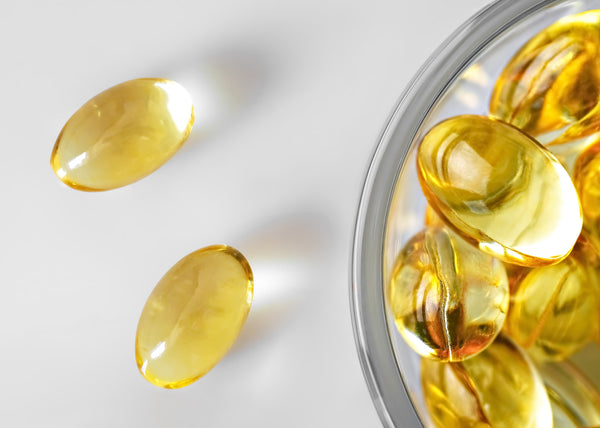Why Skin Elasticity Matters: Understanding the Science Behind Youthful Skin
What is Skin Elasticity?
Skin elasticity is essential for maintaining a youthful appearance. It refers to the skin's ability to stretch and return to its original shape, allowing it to snap back into place after being pinched or pulled. This property is largely due to two key proteins in the skin: elastin and collagen.
What Happens When Skin Elasticity Decreases?
As we age or due to various factors, our skin's elasticity naturally decreases, leading to several visible changes. The skin becomes loose and less firm, wrinkles and fine lines become more pronounced, and sagging occurs, particularly around the jawline, cheeks, and neck. Additionally, the skin takes longer to return to its original position when stretched. These changes can significantly impact our appearance, making us look older than we are.
Factors Affecting Skin Elasticity
Several factors contribute to the loss of skin elasticity, with aging being the most significant. As we age, our skin gradually produces less collagen and elastin, the proteins responsible for its firmness and flexibility. Prolonged sun exposure is another major factor, as harmful UV rays break down these essential fibers. Nutrition also plays a crucial role—poor dietary choices can deprive the skin of key nutrients needed for repair and maintenance. Staying hydrated is essential, as dehydrated skin is less supple. Additionally, lifestyle habits like smoking can accelerate collagen and elastin degradation. Lastly, genetics influence skin elasticity, with some individuals naturally predisposed to firmer or more resilient skin than others.
Improving Skin Elasticity
While some factors affecting skin elasticity are beyond our control, there are ways to maintain and improve the rest. Keeping your skin hydrated by drinking plenty of water and using moisturizers regularly can help maintain skin elasticity. A balanced diet rich in vitamins C and E, and omega-3 fatty acids also helps improve skin health. In addition to that, regular exercise improves circulation, benefiting overall skin health. Adequate sleep allows your skin time to repair and regenerate while limiting alcohol consumption and quitting smoking can also positively impact skin health.
The Role of Collagen in Skin Elasticity
Collagen is the unsung hero of youthful, elastic skin. This essential protein, accounting for an impressive 75-80% of your skin's dry weight, creates a complex matrix within the dermis, offering the structural foundation that maintains the skin’s firmness and elasticity. Collagen fibres can stretch to accommodate movement while resisting overstretching, helping your skin maintain its shape. Moreover, collagen molecules are hydration powerhouses, capable of holding up to 1,000 times their weight in water, keeping your skin plump and radiant.
Research shows that oral collagen peptide supplementation significantly increased skin hydration by 12% after just 8 weeks of intake. Additionally, collagen density in the dermis improved significantly, and the fragmentation of the dermal collagen network was notably reduced after only 4 weeks of supplementation. (NIH) Beyond structural support, collagen plays a key role in skin regeneration, facilitating the production and organization of new cells. However, as we age, our body's collagen production naturally declines. By age 60, our skin typically has only about half the collagen it had at age 20, contributing significantly to decreased elasticity and the formation of wrinkles. A study showed that by week 12, participants taking collagen supplements experienced significant improvements, including a 9% increase in overall skin score, a 15% reduction in wrinkles, a 23% boost in elasticity, a 14% rise in hydration, a 22% enhancement in radiance, and a 25% improvement in firmness. (NIH)
Given collagen's crucial role in skin health, collagen supplements have gained popularity as a potential solution to age-related collagen loss. These supplements, available in various forms such as powders, capsules, and drinks, aim to boost the body's collagen levels from the inside out.
The theory is that by ingesting collagen peptides, you're providing your body with the building blocks it needs to produce more collagen. Importantly, research indicates that collagen supplementation promotes beneficial skin changes, including reduced wrinkle formation, improved skin elasticity, increased hydration, and enhanced collagen content, density, and synthesis—all of which are key factors in combating aging-related skin damage. (TANDF) This scientific backing lends significant credibility to the potential benefits of collagen supplementation for skin health.
When considering collagen supplements, look for products containing hydrolyzed collagen or collagen peptides, as these are easier for your body to absorb. It's also wise to choose supplements that include vitamin C, crucial for collagen synthesis. Remember, while collagen supplements can be a valuable addition to your skincare routine, they work best as part of a holistic approach that includes sun protection, hydration, a balanced diet, and appropriate skincare products.
Conclusion
Understanding collagen’s vital role in skin elasticity helps us take better care of our skin. To boost collagen production and maintain skin elasticity, consider taking collagen supplements. Equally important is protecting your existing collagen by making healthy lifestyle choices, like avoiding smoking and managing stress. Additionally, incorporating vitamin C into your diet is crucial, as it plays a key role in collagen synthesis and helps boost the skin’s overall health.
Remember, while we can't stop the ageing process, we can certainly take steps to keep our skin looking its best at any age.

























